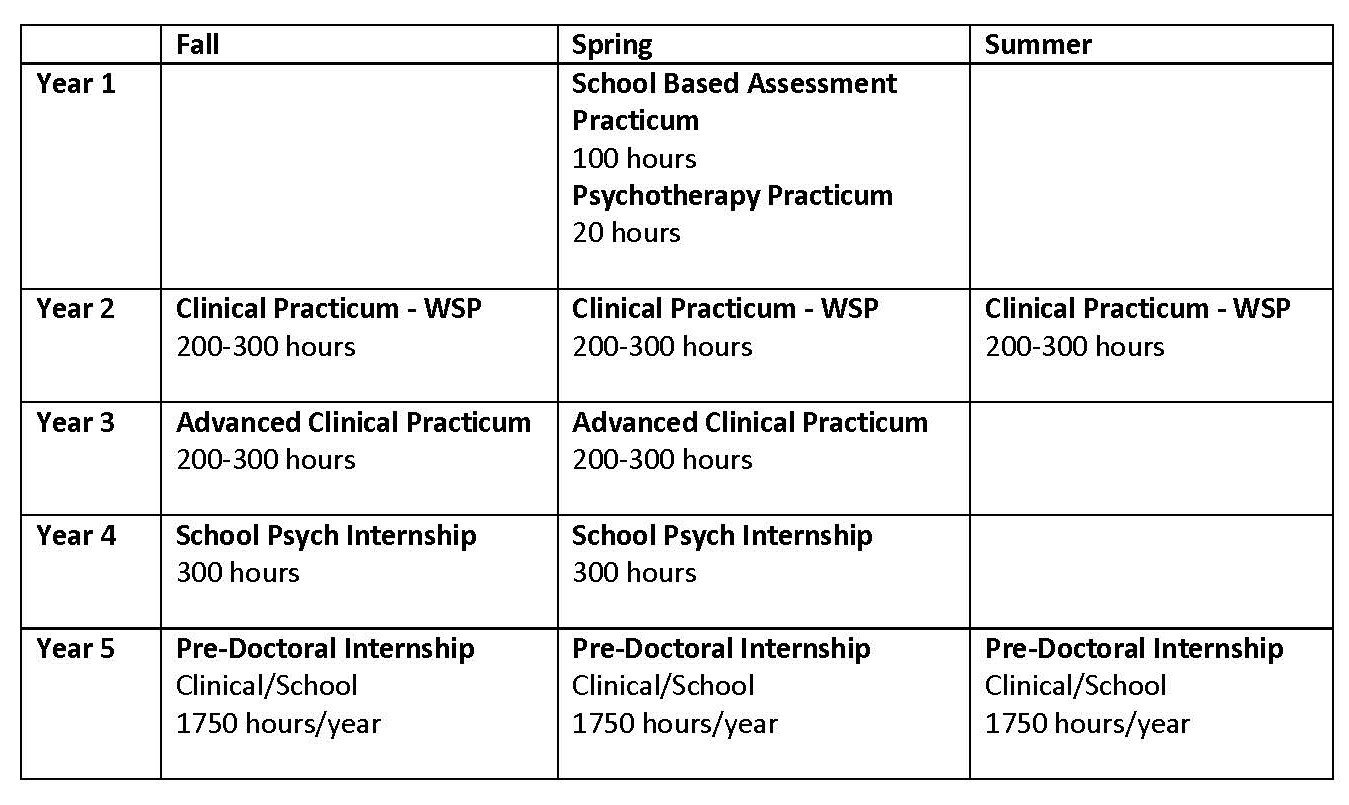Practicum Training
The Doctoral Program in Clinical/School Psychology follows a practitioner-scholar training model, equipping students with the knowledge, skills, and attitudes necessary for competent clinical practice. Our program is grounded in the philosophy that the training of professional psychologists is a developmental process that must foster the acquisition of foundational knowledge, clinical skills, and attitudes and values necessary for life-long learning and competent clinical practice. The Christian heritage of our program manifests in our commitment to ensure that students are equipped to professionally serve diverse and underserved populations with a high level of integrity and professionalism.
The Doctoral Program of Roberts Wesleyan University has been fortunate to have a number of committed schools, agencies, hospitals, and Field Supervisors who provide supervision, mentoring, and role modeling to our students. This includes the community-based training clinic, Westside Psychological Services, overseen by the psychology faculty at Roberts Wesleyan University. The graduate programs have a designated full-time Field Director to assist students through the field experience.
Our Field Supervisors’ commitment to the fields of School Psychology, Clinical Psychology, and Mental Health Services, and to sharing their knowledge and experience is essential to the professional development of our students. Clinical training begins in the first semester of the program, with a gradual introduction to the responsibilities of a health service psychologist. Clinical training encompasses the development of knowledge and competencies within traditional classes and an extensive field training component that complements classroom learning.
Field Education Sequence
The field experience program has been designed in conjunction with the didactic course sequence, to allow students to apply what they are learning, further develop knowledge and skills introduced in the classroom setting, and develop their professional dispositions and identity. Experiences in the field are sequenced to provide progressive, varied training. The table below outlines the field program.

Developmental Clinical Training Objectives
Year One: Introduction of Foundational Clinical Skills
Socialization to health service psychology (focus on areas of clinical and school)
Foundational scientific knowledge
Clinical Interviewing and diagnosis
Intervention foundations
Assessment foundations
Year Two: Development of Clinical Skills
Foundations of intervention and assessment skills through practicum experience
Integration of theory and practice
Foundational understanding of individual and cultural diversity in relation to clinical practice
Foundations of legal and ethical standards to clinical practice
Foundations of evidence-based intervention skills
Year Three: Consolidation of Clinical Skills
Development of intervention and assessment skills through practicum experience
Advanced Integration of theory and practice
Continuing development of competencies relating to individual and cultural diversity
Development of ability to apply legal and ethical standards to clinical practice
Development of evidence-based intervention skills
Conceptual integration of psychology and principles of the Christian faith
Year Four: Development of Professional Identity
Theory and skill development in consultation
Theory and skill development in supervision
Advanced development of skills in assessment, diagnosis, case conceptualization, intervention, and case conferences
Development of research competencies relating to clinical/school issues
Year Five: Transitioning to Professional Leadership Role
Consolidation of clinical skills during internship
Professional identity consolidation
Development of skills in consultation, supervision, and advocacy
2016-2023 Practicum Experiences
- College/University Wellness Centers
- Community Mental Health clinics
- Forensic/Correctional Facilities
- Hospital/Medical Centers
- Private Practices
- Schools K-12
- Neuropsychological Institutes
- Veterans Affairs Hospitals/Centers
- Child Residential Treatment Centers